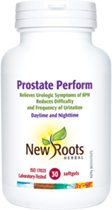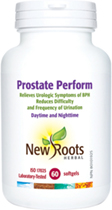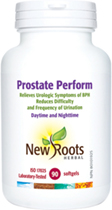Life in the Fast Lane—A Prostate Story
Life is good: You’re cruising down a four lane freeway with your traffic app predicting an on-time arrival to your destination. Then suddenly, you spot a stalled car with its hazards on. You naturally slow down to change lanes and glance over your shoulder out of curiosity. This behaviour—innocent as it seems—when multiplied over hundreds or even thousands of motorists, creates a traffic jam.
For most men approaching middle age, urogenital performance is on cruise control until the walnut-sized prostate gland falls prey to benign prostate hyperplasia (BPH), making urination more like a “stop and go” commute. This form of prostate enlargement reflects rapid growth of cells within the prostate gland, which gradually restricts the flow of urine in the urethra shortly after it exits the bladder. Subsequent pressure on the bladder leads to a slowdown of urinary stream and multiple bathroom visits. Even worse is the disruption of sleep patterns from night time urination (nocturia) and a feeling of incomplete voiding of the bladder which can negatively impact the spontaneity of intimacy.
There are one-dimensional drugs that either relax or exert a hormonal effect on the prostate, with potential side effects that range from nausea to back pain and even impotence. However, the emergence of nutraceuticals with a track record for side effect–free relief of BPH has led to the availability of side effect–free formulas for North American men.
Naturally sourced plant sterols, compounds that form cell walls within plants, are a critical component of formulas. When taken in therapeutic amounts, they interfere with the activity of an enzyme (5α-reductase) that converts testosterone to dihydrotestosterone, the hormone that accelerates cell growth within the prostate. Pumpkin seed oil, rich in nutrients beneficial for prostate health, further inhibits action of this enzyme.
In the same manner a well-balanced diet is recommended for good health, a diverse selection of nutrients is essential for a healthy prostate. Rye flower pollen extracts are becoming a mainstay for prostate formulas. They contain a mosaic of vitamins, carotenoids, minerals, amino acids, enzymes, and fatty acids that work to reduce edema (swelling) and nonbacterial inflammation of the prostate.
Extracts from the berries of saw palmetto have been used for hundreds of years by Native Americans—including the Seminoles nation of Florida—for urogenital health and fertility. Modern extraction techniques render extracts of saw palmetto rich in fatty acids, plant sterols, and flavonoids that have been proven as effective as prescription drugs for relief from symptoms of BPH.
Selenium and zinc are among the magnificent minerals that contribute to prostate wellbeing; so if you don’t eat oysters on a regular basis, look for these in a supplement.
The prostate gland multitasks to produce fluid critical for sperm transport and as the muscle that delivers the male complement of DNA responsible for conception. Unfortunately, this gland is situated where urogenital and reproductive lanes merge. An enlarged prostate can prove to be a roadblock for ongoing urogenital health.
For the growing number of men approaching middle age, and for baby boomers alike, look to include these and other prostate-friendly nutrients in your diet or in supplement form to ensure your lifestyle stays in the “fast lane.”

 Stores
Stores


